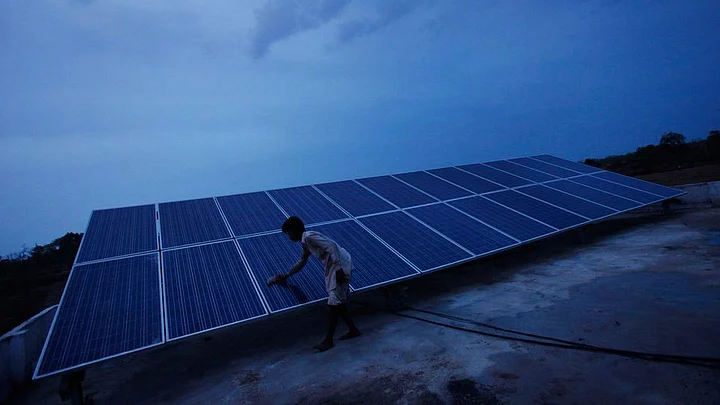- US alleges that the Domestic Content Requirements violate WTO “national treatment” rules which require a country to treat local and imported goods similarly.
- The panel’s verdict found that India had violated WTO rules and held that local solar power manufacturers had been granted an unfair advantage under JNNSM.
- India has also argued that several American states have their own DCR measures and subsidies – creating space for a counter-case against the US
- It will be interesting to see if the Indo-US agreement to collaborate on clean energy has any impact on the case.
Last week, India lost a case brought by the USA at the World Trade Organisation (WTO) against certain features of India’s Jawaharlal Nehru National Solar Mission (JNNSM). The verdict was not a surprise– Canada has previously lost a similar WTO dispute. However, this case raises important questions at a time when India is trying to develop its renewable energy capacities.
What’s the Case All About?
The main issue concerns India’s decision to include Domestic Content Requirements (DCRs) in the JNNSM.
Broadly speaking, DCRs mean that solar power developers must source components like solar cells and modules from local Indian manufacturers in order to get certain benefits under JNNSM.
The US alleges that the DCRs violate WTO “national treatment” rules which require a country to treat local and imported goods similarly.
India argues that the JNNSM DCRs are permitted by the WTO on two grounds:
- Government Procurement exception to national treatment rules: Since the government has committed to buying the power produced under JNNSM, India has asserted that the DCR scheme is covered under the government procurement exemption.
- General Exceptions to the WTO Rules: These allow countries to violate WTO rules in special cases –for example, due to environmental concerns.
What did the WTO say?
The panel’s verdict found that India had violated WTO rules and held that local solar power manufacturers had been granted an unfair advantage under JNNSM.
Why Does This Case Matter?
DCRs have caused their share of controversy.
Supporters argue that it helps the domestic development of the renewable energy industry and also boosts employment and investment in this sector. Opponents feel that DCRs increase renewable energy prices by forcing developers to choose components by country of production instead of being guided by price and quality.
However, the decision is particularly important in India’s context given the government’s decision to install 100 GW of solar power by 2022 and the flagship Make in India programme – it was hoped that the DCRs would promote domestic manufacturing.
Indian solar manufacturers are under-producing in spite of having the capacity to supply all the country’s demand. The Indian solar industry imports many of its components and it is understandable that the government wants to increase domestic competitiveness and production.
What Happens Next?
Practically speaking, the decision might not have too great an impact. After all, much of India’s increase in installed solar capacity has been due to state schemes without DCRs – Gujarat being an example. Officials have also pointed out that only a relatively minor part of the total solar programme is covered by the DCRs.
The dispute is far from being settled and the verdict is likely to be appealed. India has also argued that several American states have their own DCR measures and subsidies – creating space for a counter-case against the US. Additionally, Indian officials have pointed out that “the cost of products sourced from the US and China are suspiciously lower than the known production cost”. This would be a case of “dumping” which is also prohibited under WTO rules.
Outside the WTO system, it will be interesting to see if the Indo-US agreement to collaborate on clean energy has any impact on the case and whether negotiations might be key to sorting out the dispute.
Climate change is a major global problem and renewable energy is an important part of dealing with it. In this situation, such cases raise questions over the extent to which governments can support the development of their domestic renewable energy industries.
(Shalini Iyengar is a lawyer and researcher working in India)
